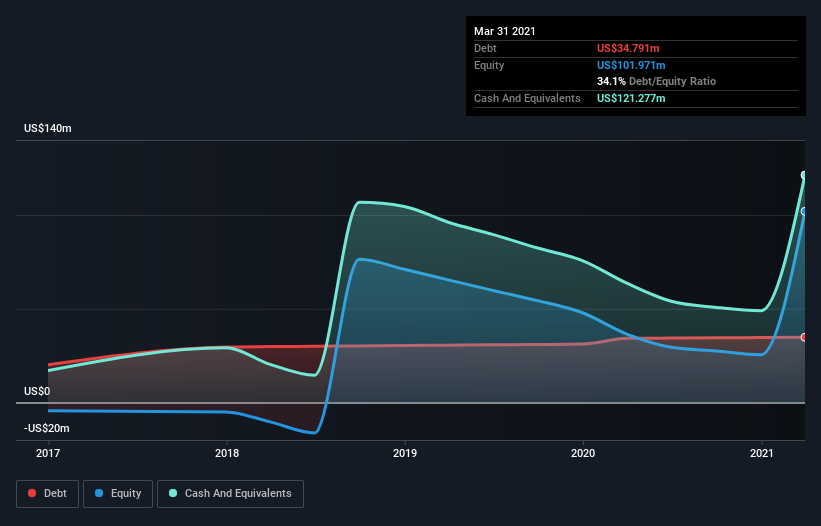Neuronetics (NASDAQ:STIM) Has Debt But No Earnings; Should You Worry?
David Iben put it well when he said, 'Volatility is not a risk we care about. What we care about is avoiding the permanent loss of capital.' When we think about how risky a company is, we always like to look at its use of debt, since debt overload can lead to ruin. As with many other companies Neuronetics, Inc. (NASDAQ:STIM) makes use of debt. But should shareholders be worried about its use of debt?
When Is Debt Dangerous?
Debt and other liabilities become risky for a business when it cannot easily fulfill those obligations, either with free cash flow or by raising capital at an attractive price. If things get really bad, the lenders can take control of the business. However, a more common (but still painful) scenario is that it has to raise new equity capital at a low price, thus permanently diluting shareholders. Of course, the upside of debt is that it often represents cheap capital, especially when it replaces dilution in a company with the ability to reinvest at high rates of return. The first step when considering a company's debt levels is to consider its cash and debt together.
Check out our latest analysis for Neuronetics
What Is Neuronetics's Net Debt?
The chart below, which you can click on for greater detail, shows that Neuronetics had US$34.8m in debt in March 2021; about the same as the year before. However, its balance sheet shows it holds US$121.3m in cash, so it actually has US$86.5m net cash.
How Healthy Is Neuronetics' Balance Sheet?
We can see from the most recent balance sheet that Neuronetics had liabilities of US$10.9m falling due within a year, and liabilities of US$39.4m due beyond that. Offsetting this, it had US$121.3m in cash and US$8.89m in receivables that were due within 12 months. So it can boast US$79.8m more liquid assets than total liabilities.
It's good to see that Neuronetics has plenty of liquidity on its balance sheet, suggesting conservative management of liabilities. Given it has easily adequate short term liquidity, we don't think it will have any issues with its lenders. Simply put, the fact that Neuronetics has more cash than debt is arguably a good indication that it can manage its debt safely. There's no doubt that we learn most about debt from the balance sheet. But ultimately the future profitability of the business will decide if Neuronetics can strengthen its balance sheet over time. So if you're focused on the future you can check out this free report showing analyst profit forecasts.
In the last year Neuronetics had a loss before interest and tax, and actually shrunk its revenue by 18%, to US$50m. That's not what we would hope to see.
So How Risky Is Neuronetics?
We have no doubt that loss making companies are, in general, riskier than profitable ones. And we do note that Neuronetics had an earnings before interest and tax (EBIT) loss, over the last year. And over the same period it saw negative free cash outflow of US$25m and booked a US$23m accounting loss. However, it has net cash of US$86.5m, so it has a bit of time before it will need more capital. Overall, its balance sheet doesn't seem overly risky, at the moment, but we're always cautious until we see the positive free cash flow. When analysing debt levels, the balance sheet is the obvious place to start. But ultimately, every company can contain risks that exist outside of the balance sheet. These risks can be hard to spot. Every company has them, and we've spotted 4 warning signs for Neuronetics you should know about.
If you're interested in investing in businesses that can grow profits without the burden of debt, then check out this free list of growing businesses that have net cash on the balance sheet.
This article by Simply Wall St is general in nature. It does not constitute a recommendation to buy or sell any stock, and does not take account of your objectives, or your financial situation. We aim to bring you long-term focused analysis driven by fundamental data. Note that our analysis may not factor in the latest price-sensitive company announcements or qualitative material. Simply Wall St has no position in any stocks mentioned.
Have feedback on this article? Concerned about the content? Get in touch with us directly. Alternatively, email editorial-team (at) simplywallst.com.

